Kleros, decentralizing and empowering justice
The human being is made to socialize, communicate, exchange ideas, goods or services, he has done it for thousands of years and, today this reality is more and more palpable, the facilities in communication make it much easier to connect people and places in a way that before we could only imagine, now borders and countries fall short in the face of such a wave of globalization.
Of course, more cultural exchanges and trade, also means more disputes and conflicts, not everything is beautiful and positive; there will always be problems due to difficulties in communication, differences in cultures or dishonesty by one of the parties involved.

Disputes, the problem
These disputes should not be an obstacle to the exchange of knowledge and products among nations, but something natural that should be resolved easily, however, it is at this point where the effectiveness and tranquility of the users ends, having these to recur to inefficient and outdated methods of conflict resolution.
Unless these disputes are thousands of dollars, the states will not be able to provide a solution, they are rather an obstacle to trade among people, their laws and regulations only complicate more the resolution of problems between individuals and institutions.
That is why for deals of $200 or $3500 it's not worth going to state courts –because of the expense of time, money, and annoying regulations–. Private courts or existing technologies do not offer the efficiency, security, trust and adequate arbitration required by users.

Smart contracts – Smart enough?
It is in the context of resolving conflicts and disputes in the new digital economy, where the smart contracts offered by the blockchain of Ethereum seem an excellent and total solution. However, this would be a very short view of reality.
Despite working for some disputes, the contracts are very short in scope, since they are very basic and not very human, we do not usually act as robots following an algorithm, in many cases, we need the objective opinion of a qualified third party for the dispute, intervention is necessary.
This intervention is called arbitration, that is, a pact of mutual agreement between the parties to the conflict, which establishes a clause so that, in case of any inconvenience, the users go to an independent third party chosen in advance who will act as a jury and will decide the resolution of the conflict.
However, how to integrate arbitration into smart contracts?
Imagine the case of Donald, he lives in Mexico and buys a house in New York from a company called BernieBuilts, they agree to the payment through a smart contract, in which the deposit will be paid when Donald verifies that he entered the property. However, when he arrives, he realizes that the place is not in the best conditions; does he have to pay for a house that he did not expect? Or does he have to return without giving anything to BernieBuilts?
Another possible situation is that of Adolf, who makes a contract with Winston to paint his apartment building, after the work is finished, Adolf must pay Winston, however, when it ends, the owner says it was not the color that he wanted, therefore, does not want to pay, how to solve this issue?
These problems –and infinity of similar cases–, have a solution, which is not only simple, efficient and transparent but is decentralized and –of course– is based on blockchain technology, its name is Kleros, which managed to integrate arbitration and smart contracts.

What is Kleros?
“Kleros is a decentralized application built on top of Ethereum that works as a decentralized third party to arbitrate disputes in every kind of contract, from very simple to highly complex ones”.
It is a fully decentralized platform designed to act as a court, aimed at all types of smart contracts, allowing the arbitration of cases through an anonymous jury knowing the topic of each dispute.
This application allows you to define in advance the conditions under which the deals will be carried out, so that if there is a problem that cannot be solved by the users, the case is brought to Kleros, allowing them to be sure that the dispute it will be resolved in the fairest way by juries from all over the world, qualified for each specific case.
In short, Kleros makes smart the smart contracts –creating smart arbitrage–.
Kleros intends to be an active element of the digital revolution that we are going through, based on crowdjury to solve the new problems facing our globalized society.

Inspiration – Greece and the Nobel Prize
In ancient Greece, when there was a trial, citizens had the right to practice as jurors, they had to apply with their pinakion –bronze plate that identified them– and then be chosen at random and settle the matter with transparency and justice.
Applying this system directly today seems impossible, but thanks to the blockchain technology, we have an efficient and transparent way to choose random juries. Another problem posed by this method is that not everyone can judge all kinds of issues; certain conflicts require experts to act with certainty and speed.
Kleros solves this problem, filtering each jury by its specific area of knowledge; however, there is a much more important issue: How to ensure that arbitration acts honestly? This is where mathematics comes into play, specifically, game theory, which studies decision making, not games.
Do not be utopian or naive; people usually act honestly if they get benefits for it. That is why Kleros is inspired by the work carried out by the Nobel Prize winner Thomas Schelling and the founder of Ethereum, Vitalik Buterin, implementing a system based on economic incentives that ensure the honesty of the juries.
This system is based on the fact that a group of people who do not know or trust each other, will act honestly if they are rewarded for acting in this way in a group manner, otherwise, they are penalized. This motivates them to be honest because they hope that the group will tell the truth, in addition, the fear of a penalty, will make them think well of their response.

How does it work? Classical solutions digitalized
The system is quite clear so that users have no problems or inconveniences when carrying out the "trial". Next, a summary of how the platform works.
The contract and the court “tree”
The people, institutions or companies that are carrying out a deal, must make a smart contract where it is clear that at the time of any inconvenience, they must resort to a Kleros court to resolve the dispute.
In this contract the parties must specify how many juries there will be, which options may be voted by these or who will pay the commissions, in addition, they must choose which subcourt will take charge of the conflict so that they can have the services of the most competent jurors. In this case, Kleros provides an arborescence system, in which each court branches from the general to each specific sector.

In the future, Kleros will provide a series of standard contracts, for ease and confidence of users.
It should be noted that this "tree" will not remain immobile, it will evolve to adapt to the constant changes that may occur. In addition, each subcourt will be unique, since it will have its own policies, commissions, costs, and jury numbers, among other features. Who will decide these changes? Active users who own pinakions –the Kleros token–.
In most cases, the agreements will be carried out normally, therefore, nothing else will happen, however, there will be some in which there is a dispute, on those occasions, you must proceed with the next step.
Selection of juries
The users will have an economic interest in participating as jurors since they will have the possibility of obtaining benefits for the commissions of their work. These will be chosen through the pinakion token (PNK).
Those who want to practice as jurors will have to deposit a certain amount of PNK; the possibility of being chosen for a dispute is directly proportional to the amount of tokens deposited. In the event that a jury votes incoherently with the majority –which is considered dishonesty in the system– will be penalized economically.
Deliberation and voting
When the juries have been chosen, they will receive the information of the case, they will have to study it and they will have a certain time limit to choose the correct option –the time and the options depend on the subcourt and the specifications of the contract–, they must also explain the reasons for the selection of their choice.
Then, the smart contract goes ahead; the option with the most votes is the winner. Immediately, the coherent juries who chose this option take their commission and the cost of the penalty to the incoherent ones.
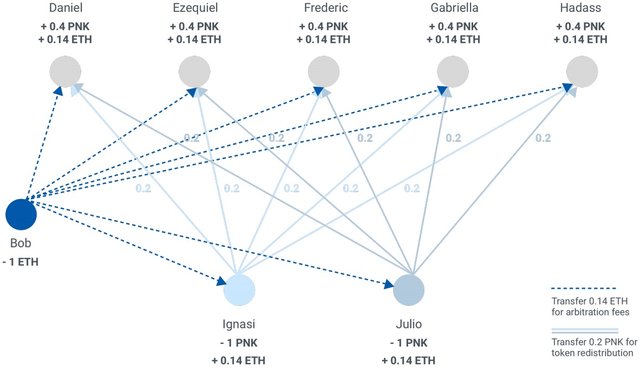
Appeal
It is possible that an involved party is not satisfied with the decision of the jury, in that case, can appeal, which is that the process is repeated with different juries, what varies is the amount of these, to avoid abuse, the number of arbitrators is doubled and one more is added, so that the commission is raised and it is economically unfeasible to make many appeals.
Although users can choose which party will be responsible for paying commissions, the system has certain standard rules that can be applied to all cases, so those abuses of the platform or, emotional appeals, are be avoided.

Security – No space for cheats
At first glance, it may seem that the system created by Kleros has important vulnerabilities, appealing many times to annoy or dishonesty on the part of the jurors, we have already seen and found the solution to these cases, but there are many more, such as the possibility of bribing the arbitrators, buy half of the PNK to have excessive power in the system, among others.
To avoid this type of inappropriate behavior or abuse of the platform, Kleros has developed certain functionalities in his system that will make impossible the performance of these bad actions. Using a lot of logic, the team has managed to design a robust platform against malicious attacks, creating different solutions for each case, discouraging any inappropriate behavior.
There is also the possibility that, for certain cases, sensitive or confidential information has to be handled; however, the system created by Kleros allows it to remain hidden from external agents so that no one's privacy is violated.

Use-case
Going back to the examples at the beginning, if Donald and Bernie Builts make their contract through Kleros, they could go to a real estate purchase court, so that a team of jurors would assess the damage to the property, deciding if it is possible that in two-week term –time pre-established in the contract– the necessary repairs can be made. This option could penalize the seller for the time the client was lost.
If Adolf and Winston were agreed to an intelligent contract using Kleros, they could have chosen options such as a) paying Adolf b) paying Winston c) repainting with Winston money d) repainting with Adolf money. At the time of the dispute, the jury would observe the information to decide who was responsible for choosing the wrong color.
In this case, after deliberating, the jury agreed to deliver the money to Winston, since Adolf was the one who made the mistake of choosing the wrong color.
Imagine a new manufacturing startup; it does not have much experience in legal matters, so it decides to use one of Kleros's standard contracts to do business with its suppliers, so that, if the suppliers do not meet the specifications of the contract, the startup has its funds protected.
A sector in which Kleros can be widely used, is in companies such as Uber, Airbnb or eBay –or its decentralized versions–, because those small inconveniences –poor conditions of a product, car or room, for example– are usually very tedious to solve. In this case, Kleros will act as a cheap insurance in relation to the inconvenience that will be avoided.
In the case of contest or competitions, Kleros would be an exceptional tool. Let's imagine @originalworks doing a scientific contest. Through a digital contract, they establish that if 50% of the participants do not agree with the winner -which must be excellent-, the case will be taken to Kleros, where a totally impartial jury will decide the future of the prize. And it is that this use is very wide since Kleros offers arbitration 100% impartial for any occasion.
The use of Kleros can go beyond the private sector, states can benefit greatly from this application since these are the ones that suffer the most efficiency problems, although in this case it must be verified that the jury is a citizen of that country, but it would not be any inconvenience.

Despite having given several examples, the use of Kleros goes much further, can be used in virtually any transaction or relationship between individuals or institutions. In case you want to find out about other examples, I invite you to the website of the company.

A global team for a global solution
The idea of crowdjury was born in the mind of an Argentine after the case of Nisman, from there, it has spread all over the world, from Serbia to Oregon, from Portugal to Los Angeles, the team of experts behind Kleros knows very well the global problems that exist today. They are digital entrepreneurs, skilled in the capabilities necessary to carry out a project of this magnitude.
Meet the team in this video.
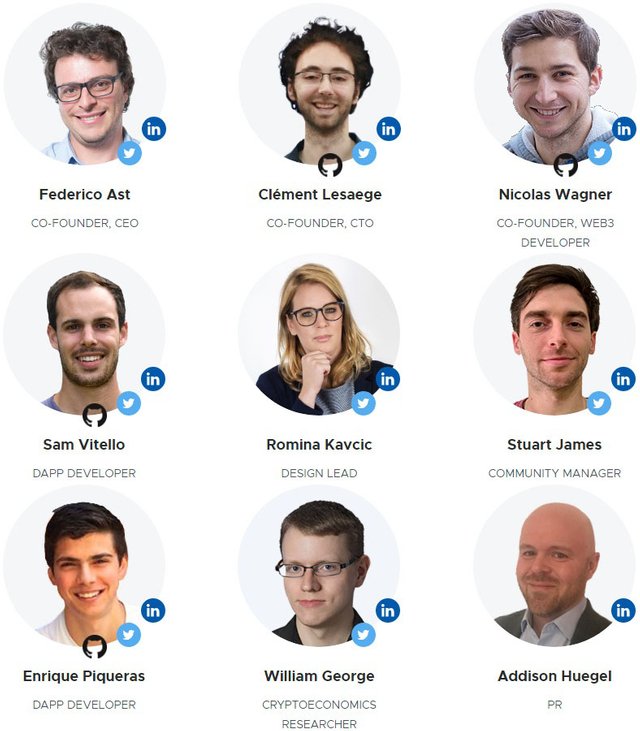

The token - Inspired by Athenian democracy
The name of the token –Pinakion–, is inspired by ancient Greece, this was a bronze identification of Athenian citizens, used for be chosen in their system of government. Today, it will be the fundamental tool for the operation of the application. It is what I like most about this token, its usefulness, since this will be the blood of Kleros' body, will avoid abuses and will reward users.
Why a token? Video explanation here.
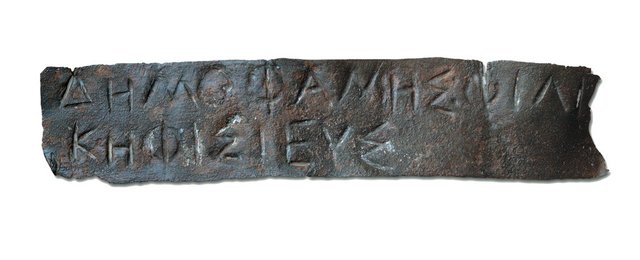
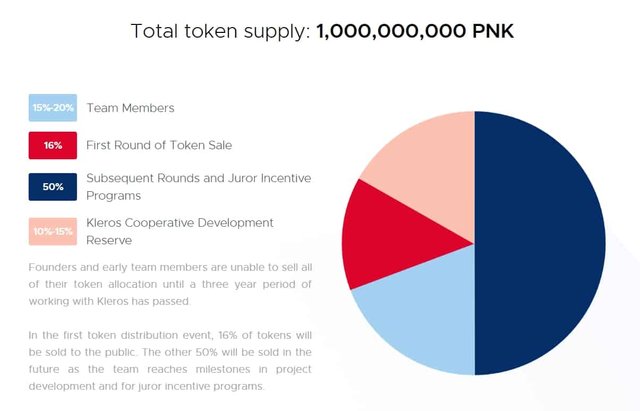
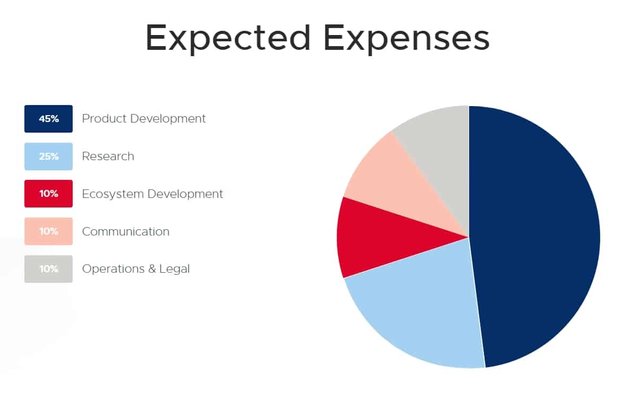

Strategic partners
A good idea is never left alone, that is why Kleros has won the support of important companies that trust in their vision and philosophy, among them:


Advisors


Roadmap
July, 2018: Launch on Main Net and Early Pilots.
October, 2018: First Version with Real Enforcement.
April, 2019: Multiple subcourts and governance mechanism release.
July, 2019: Abstraction Release
September, 2019: Complex Disputes Release
This roadmap is tentative. Iterations can be shorter or longer. Source.
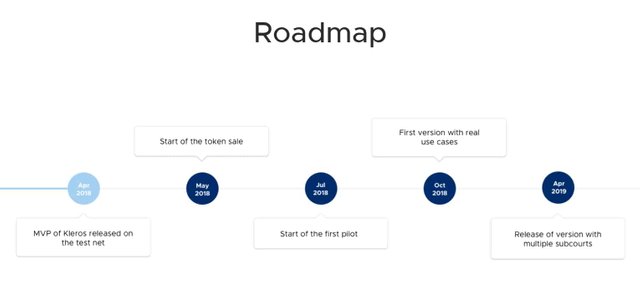

Conclusion - The Greek blockchain
All the systems that are not able to adapt to the vertiginous changes that happen nowadays, perish, there are many companies that go bankrupt every day, while others more efficient and powerful in many aspects, increase our quality of life.
An example of these outdated systems are the current justice protocols, which cannot effectively address globalization and decentralization, in addition to changes in society such as the growing number of people who work independently or those who embark on startups, how can they defend themselves?
They cannot wait weeks, months or years for the current justice system to do its job, and we must not forget the associated costs of traditional courts, time and money that people may not have. Does this mean that they will not be able to exercise their right to justice?
This is where Kleros reconciles the digital world and justice, allowing to solve a large part of the problems arising from the digital economy, putting at the service of individuals, experts juries from around the world, completely anonymous –none will know each other and none will know the users–, who will benefit from providing justice and order to the world.
And it is that not only the parties in dispute will benefit from Kleros, but that there is a great motivation to be a good jury. The inhabitants of developing countries will have the opportunity to value their skills, generating extra income -lacking inflation and instability- and new knowledge for it.
Kleros will allow startups or independent workers, not to lose their job reputation through small disputes; since the parties in conflict will have a clear protocol to follow that will avoid bad gossip.
In addition, we must not forget the great opportunity that Kleros is for our freedom, showing that not only the state can take charge of issues such as justice, opening the door for governments in the future to have less control over the private lives of individuals.
Applications change the paradigms profoundly, 100 years ago: who would think that we would send emails or handle the bank the way we do nowadays? Who would imagine Uber or Airbnb? So the idea that courts be in our pocket does not seem crazy.
For more information watch this short feature intro:
To understand the crowdjury, check the following video:
Kleros system explained in an image
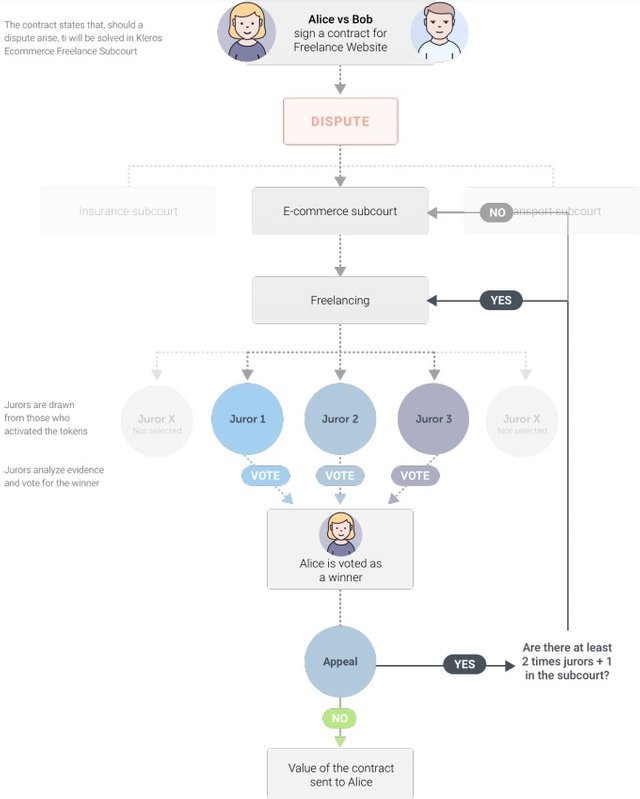
Kleros Experiement
Kleros has done an experiment to test his system. You can find out here.

More Resources:
- Kleros Website
- Kleros WhitePaper
- Kleros Medium
- Kleros YouTube
- Kleros Telegram
- Kleros Twitter
- Kleros Github
- Kleros Forums
Greetings
If you have any questions, leave it in a comment and I will gladly answer it.
This is my entry for the @originalworks writing contest.
kleros2018
klerostwitter ---> https://twitter.com/beFrao/status/1031977490217140224
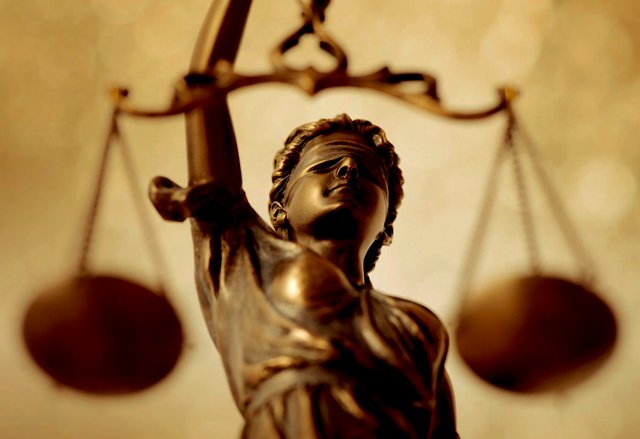

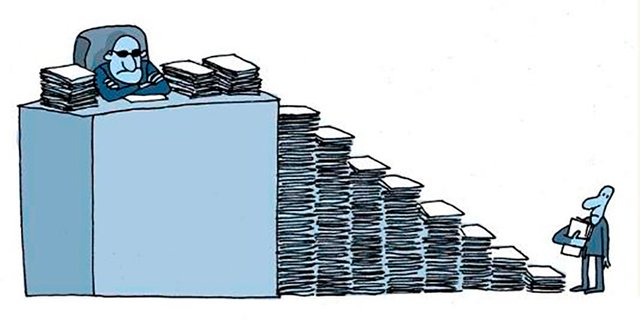
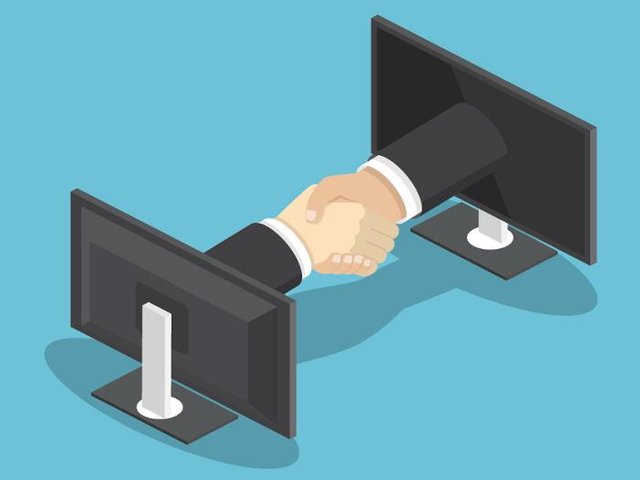

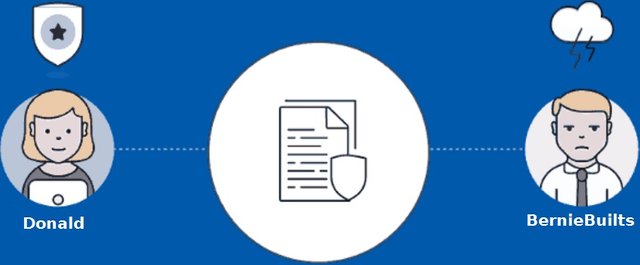


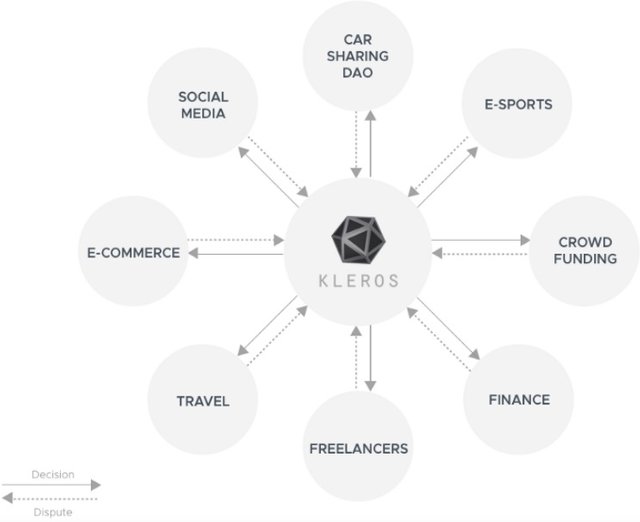

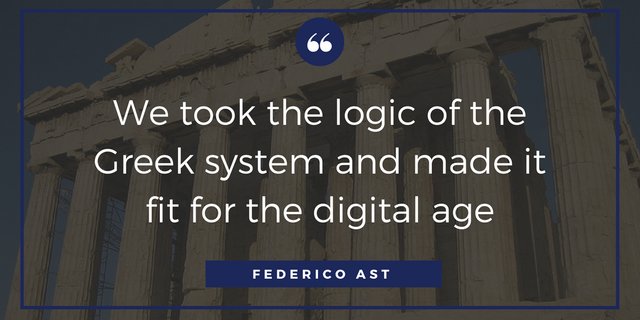




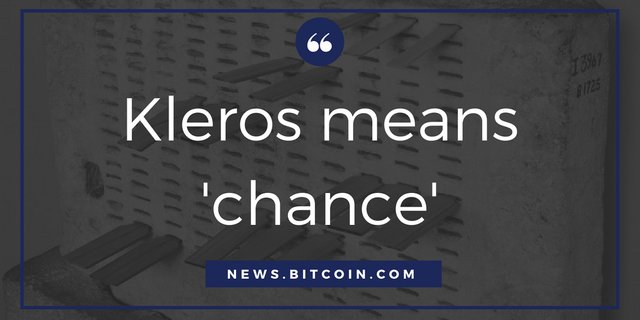
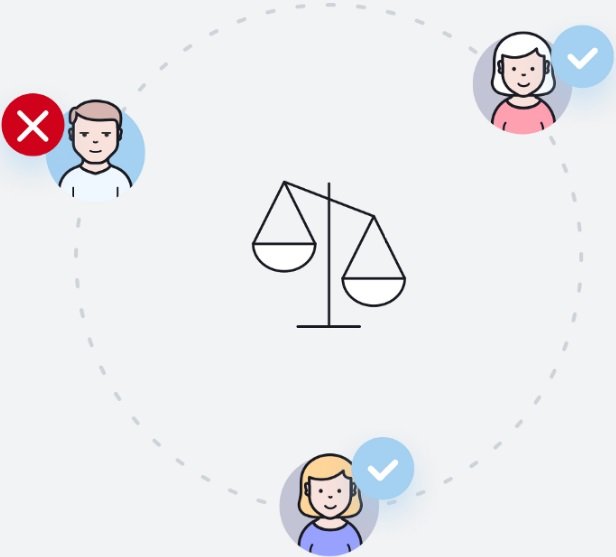
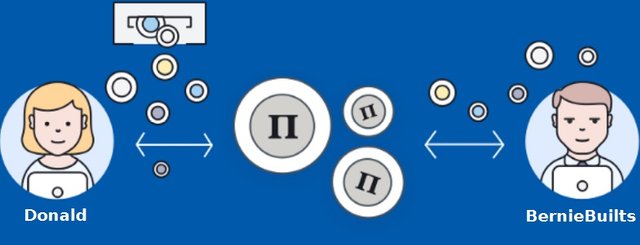






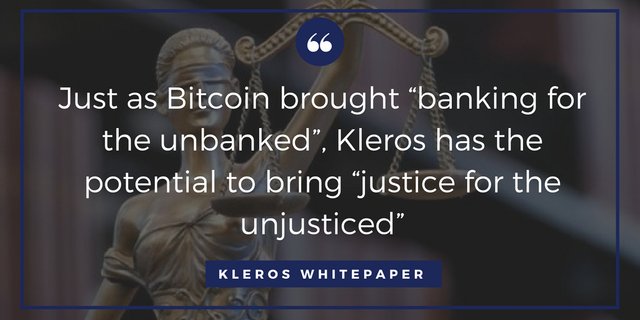

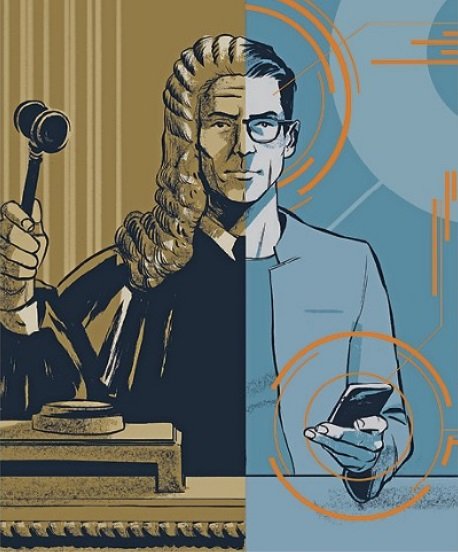
This post has been submitted for the @OriginalWorks Sponsored Writing Contest!
You can also follow @contestbot to be notified of future contests!
Congratulations! This post has been upvoted from the communal account, @minnowsupport, by julioccorderoc from the Minnow Support Project. It's a witness project run by aggroed, ausbitbank, teamsteem, someguy123, neoxian, followbtcnews, and netuoso. The goal is to help Steemit grow by supporting Minnows. Please find us at the Peace, Abundance, and Liberty Network (PALnet) Discord Channel. It's a completely public and open space to all members of the Steemit community who voluntarily choose to be there.
If you would like to delegate to the Minnow Support Project you can do so by clicking on the following links: 50SP, 100SP, 250SP, 500SP, 1000SP, 5000SP.
Be sure to leave at least 50SP undelegated on your account.
Naguebona, en cualquier momento te ganas el primer lugar, jaja. Demasiado arrecho este artículo. Felicidades.
A eso es lo que apunto jajaja, gracias!
Que buen articulo muy extenso y explicativo.
Espero que haya sido claro. Saludos!
Grandioso post, muchísima suerte!
Gracias! Suerte no... Éxitos xd
Madre de post amigo..! Si no te ganas el primer lugar, caray..! Está demasiado bueno..! Felicitaciones de antemano, porque huele a éxito total..! Saludos...
Muchas gracias por tu opinión, me esmeré mucho está vez, deseo ese primer lugar con muchas ganas jajajaja, espero que sea reconocido el esfuerzo, de lo contrario, a trabajar más la próxima vez.
De nuevo, agradezco tus buenos deseos, saludos!
Definitivamente, te lo mereces, tenía tiempo que no veía un post tan extraordinario como ese. Creo, si no me equivoco que lograrás lo que anhelas...y de no ser posible (creo que si será), estoy seguro que el próximo post, en el concurso, rebasará tus propias expectativas. Éxitos amigo.